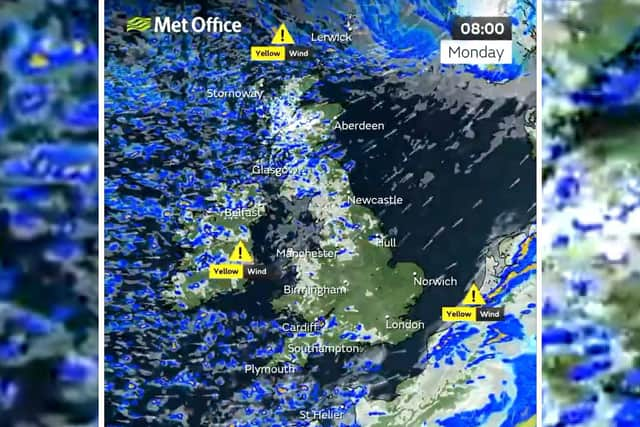Freight group blames Northern Ireland Protocol for making it harder for ferry stuck in Irish Sea to avoid storm and head for port
and live on Freeview channel 276
As reported above, the ro-ro vessel Stena Estrid spent about 11 hours doing circuits in the sea off the mouth of Belfast Lough amid the seriously rough conditions created by Storm Isha.
The entire journey from Liverpool to Belfast was meant to take only around eight hours, but it left port at 10.30am on Sunday and did not dock until 4.30am on Monday.
Advertisement
Hide AdAdvertisement
Hide AdJohn Martin of the Road Haulage Association (which looks after the interests of freight firms) told the News Letter that this will have cost shippers dearly – and that the current post-Brexit arrangements make it much harder for freight-bearing vessels to divert to ports in the Republic.


“Weather events such as the one experienced last night, whilst unavoidable, have a significant financial impact on any haulier caught up in the delays,” he said.
"The logistics sector within Northern Ireland works on small profit margins, and delays have a significant impact on these.
"It also affects drivers’ welfare as some may have been away from home for extended periods.
Advertisement
Hide AdAdvertisement
Hide Ad"Any delays such as the one experienced also impacts on just-in-time deliveries, including manufacturing, retail, and hospitality within the region.
"It’s good everyone eventually arrived safe into the port. However with more extreme weather forecast, the sector is preparing for more delays."
He added: “Prior to the Windsor Framework/Protocol vehicles could have been re-routed quickly from GB to Southern Irish ports.
"However this option is now subject to lengthy delays due to the completion of paperwork and the requirement to notify journeys in advance.”
More on the storm by this reporter here:
Advertisement
Hide AdAdvertisement
Hide AdAnother knock-on impact of the storm was that, counter-intuitively, it led to less wind-powered electricity.
SONI, the body the basically runs the NI power grid, told the News Letter that extreme gusts “resulted in a loss of a significant amount of wind on the grid due to high-speed shutdown of wind turbines”.
It added: “Wind turbines have a protection mechanism called high-speed shutdown which prevents them from operating at dangerously high speeds and causing mechanical or structural damage in extreme conditions.
“Despite significant levels of high-speed shutdown in Northern Ireland during Storm Isha, wind generation in Northern Ireland continued to provide 28% Northern Ireland’s electricity at a minimum.”